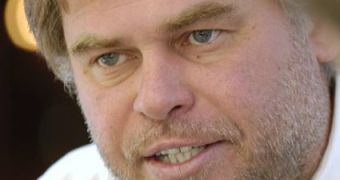Eugene Kaspersky, founder and current CEO of Russian antivirus vendor Kaspersky Lab, has issued a public statement about his son's recent kidnapping and subsequent release in which he stresses that despite recent events, Moscow remains a safe place to live.
Twenty-year-old Ivan Kaspersky was kidnapped last Tuesday from an industrial area in north-west of Moscow while on his way to work.
The kidnappers asked his family for a ransom of €3 million ($4.3m). However, any potential advantages they might have hoped to have by targeting the son of a rich man were overshadowed by the fact that Eugene Kaspersky is very well connected, especially with the government and security services.
It took two days for the Russian Federal Security Service (FSB), the Moscow Police and Kaspersky Lab's private security personnel, to locate Ivan, free him and arrest the kidnappers.
"It was a very hard time for me and my family and we are very happy that things ended successfully. Vanya, my son, many of you know him from the news reports as Ivan, is now in a safe place and feeling okay," Eugene Kaspersky said in a statement posted on his Facebook page.
The antivirus expert who founded Kaspersky Lab in 1997 together with his now ex-wife Natalya Kaspersky, thanked his colleagues and employees for keeping the company running normally during this time. He also praised the professionalism displayed by law enforcement agencies that carried out the investigation and successful rescue operation.
Mr. Kaspersky also took the opportunity to say that these types of incidents are not usual in Russia's capital city. "One may think that this incident illustrates a common practice here in Moscow. Let me assure you that, this is not the case. This is an extraordinary exception, as Moscow remains a very safe place to live and work," he said.
Nevertheless, Eugene Kaspersky wasn't happy with everyone. For example, he was upset that some media outlets circulated exaggerated rumors in an attempt to increase their traffic.
He warns that when dealing with sensitive situations like the one involving his son, this sort of information distortion can lead to "unrecoverable consequences." Kaspersky did, however, congratulate the Reuters news agency for its impartial and professional reporting.

 14 DAY TRIAL //
14 DAY TRIAL //